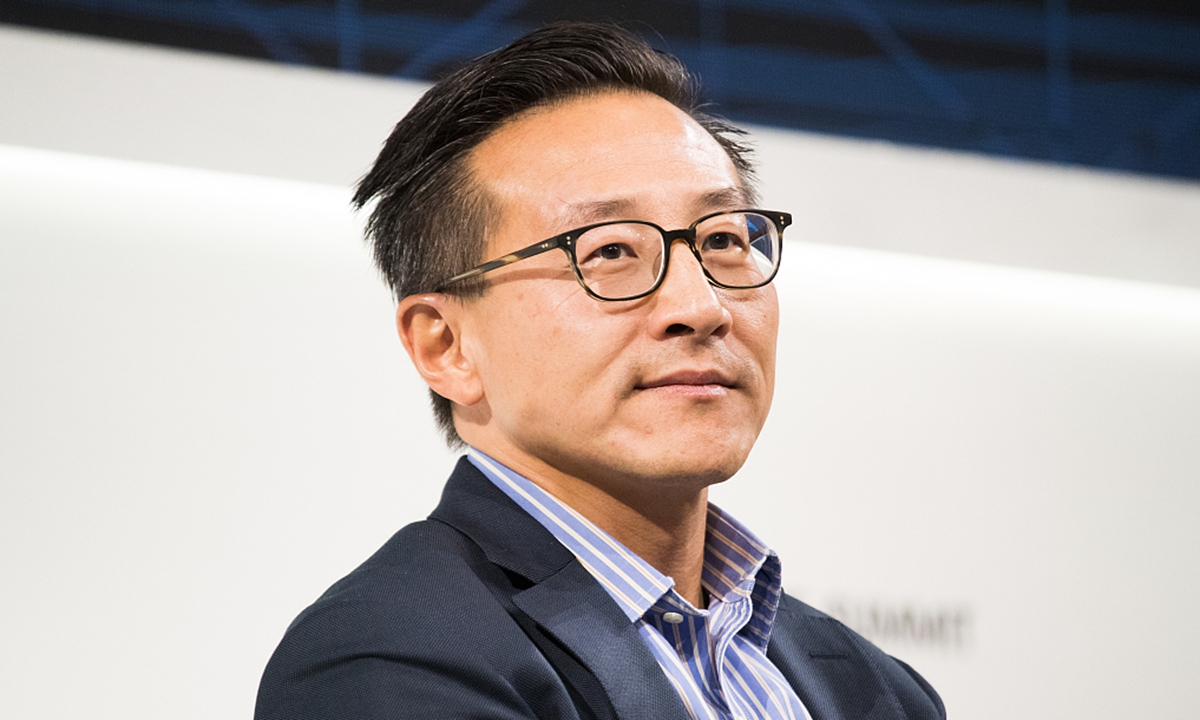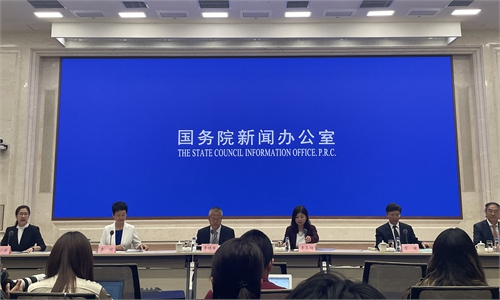Alibaba co-founder Joe Tsai’s CNBC interview has gone viral in China. Here’s why.

Joseph Tsai Photo:VCG
On June 15, Alibaba co-founder Joseph Tsai was interviewed by US media CNBC. During their 22-minute long talk, they had a conversation on topics including anti-Asian hate in the US, the Hong Kong issue, and China's overall human rights situation.The Taiwan-born Canadian businessman mentioned that in terms of human rights, the Chinese people care about the results, in other words, their happiness. And the reality is that they are happy. Video clips of this interview have gone viral on Chinese social media.
In China's view of human rights, whether the human rights situation is good or not is judged by the people's sentiments, not by the standards of some countries, which are not suitable for the Chinese side.
China's human rights situation has improved over the years. Chinese people are getting richer. For instance, "… in 1999, the GDP per capita was $800 in China. Today is over $10,000," noted Tsai. As living standards keep improving, more Chinese people feel an increasingly strong sense of happiness.
What Tsai said in this interview has stated an objective fact. That is, people in China have gained a sense of fulfillment in the current environment, but this feeling is what Westerners have difficulty understanding or are unwilling to understand. Their abstract preaching about human rights is also unconvincing in this case.
Some people think that many American business leaders are not allowed to speak out about human rights issues in China. But Tsai thinks that CEOs from the US need to respect Chinese set of values if they want to do business in China. In fact, not only China, but also people all over the world want their own values to be respected. They want to be able to talk about their values on an equal footing. But the West, which currently dominates the discourse about values, does not have a minimum of respect for other cultures or non-Western values.
The political elite in the US have been detached from the masses in the country for too long, and at the same time, lack an objective understanding of other countries. As a result, they are neither able to accurately judge the human rights situation in their own country, nor other countries. On the contrary, the US has always considered itself as the country on a "Human Rights Pedestal." This reflects its self-righteous sense of superiority in values, race and civilization.
Washington is in no position to criticize others' so-called human rights abuses. That is because the US has seen various human rights issues, from systemic racism to the indifference toward human lives in the face of the COVID-19 pandemic. Yet, the country still pays a lot of attention to China's human rights issues. It actually wants to use human rights issues as a tool to interfere in the domestic affairs of other countries, especially of those, in Washington's opinion, that are challenging its hegemony.
Russian President Vladimir Putin quoted a Russian saying in an interview on June 14, which goes like "don't be mad at the mirror if you are ugly." This is the most accurate expression to describe what the US is like right now. The US should introspect much about the reasons why its human rights record is bad, before questioning others.
The author is professor at the Institute of International Relations of the China Foreign Affairs University. opinion@globaltimes.com.cn



